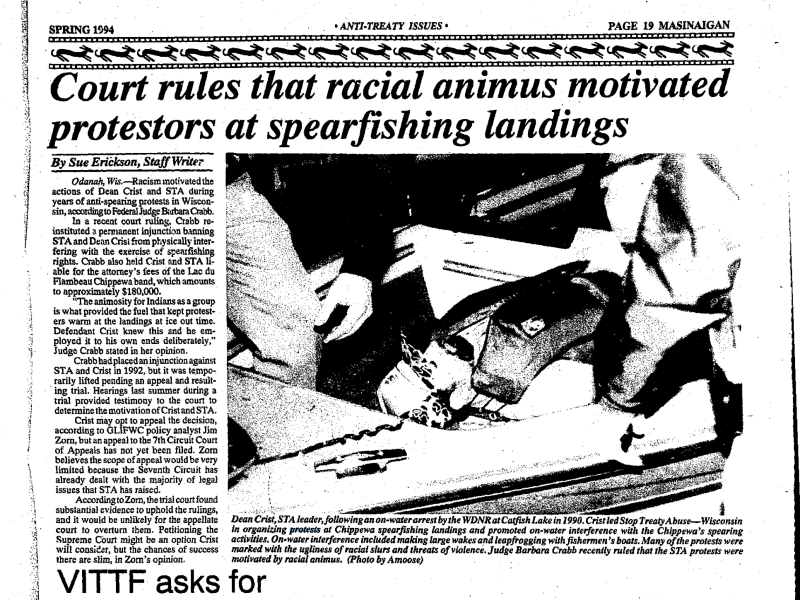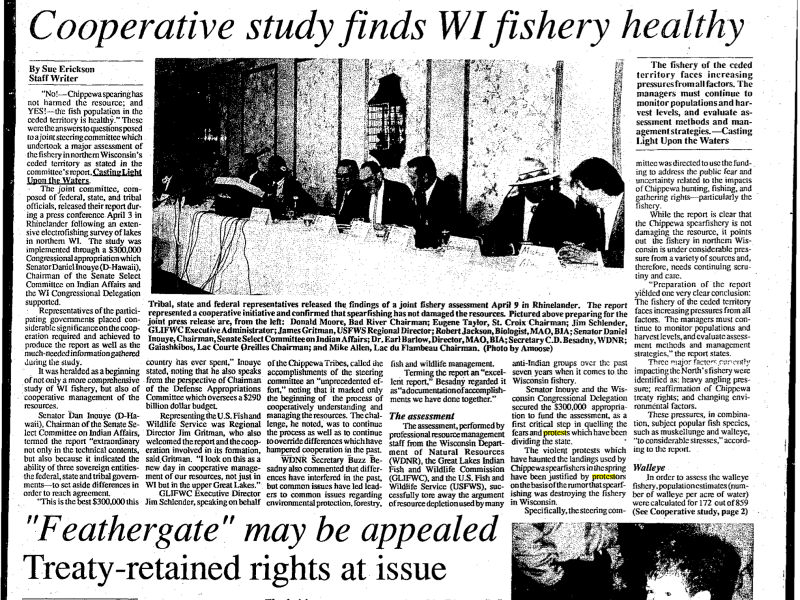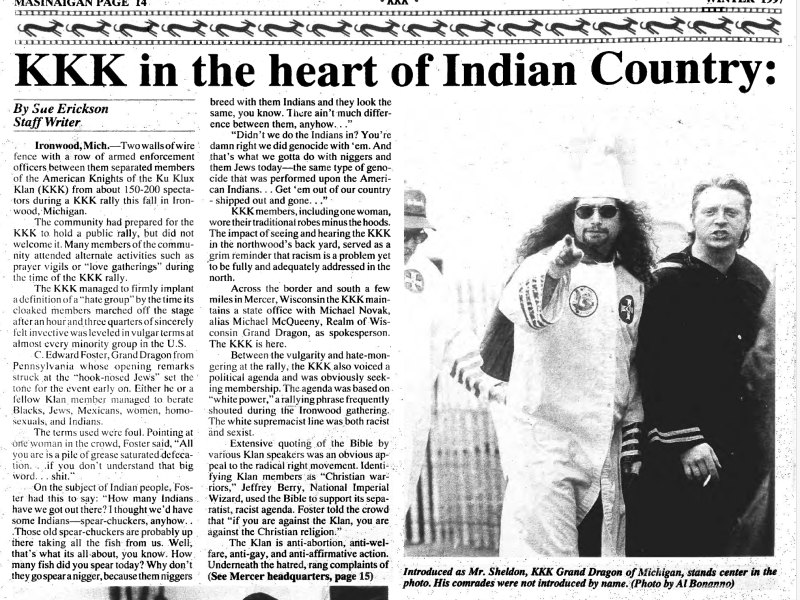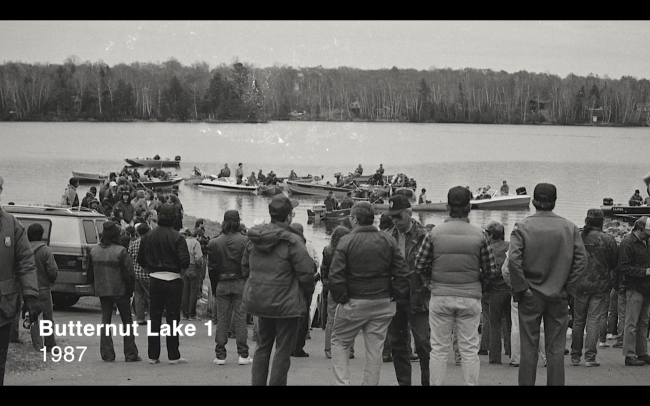
Both in Lake Superior waters of Michigan and Wisconsin treaty commercial fishermen experienced a backlash to treaty rights in the early 1970s involving verbal slurs, threats and damage to equipment. This carried over when inland treaty fishing in Wisconsin was first implemented in 1985.
A strong negative public reaction coalesced under groups that formed in opposition to the treaty rights. Some of these included Equal Rights for Everyone (ERFE), Protect Americans Rights and Resources (PARR), and Stop Treaty Abuse (STA) in Wisconsin and Proper Economic Resource Management (PERM) in Minnesota.
Propagating misconceptions and organizing public rallies in opposition to the treaty rights, especially spring spearing and netting seasons, these groups frightened local citizens by saying the resources were going to be destroyed along with property values and businesses. In Wisconsin they encouraged and organized active anti-Indian protests at boat landings, which turned ugly, racial and dangerous.
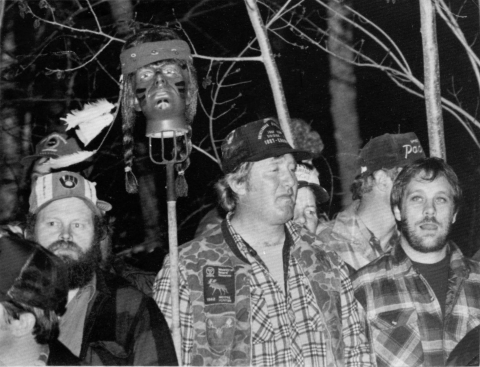
After enduring years of racial harassment and slander, the protest movement was finally curtailed following a lawsuit filed by the ACLU against STA. In 1991 Judge Barbara Crabb issued an injunction to prevent protestors from interfering with spring spearfishing. Three years later, Judge Crabb ruled that racism motivated the STA protest activities. Also serving to quell the protest was the 1991 Casting Light Upon the Waters report based on joint federal, state, and tribal fishery assessments. The report concluded the treaty fishing activities did not harm the resource. Following up on the Casting Light Upon the Waters study, the Joint Fishery Steering Committee continues to release fishery status updates every few years
